Ms. L. was hospitalized and treated with antibiotics for a week but her fever did not go away. In June 2024, she went to Tam Anh General Hospital in Ho Chi Minh City for treatment. Here, Ms. L. had blood tests and a general ultrasound to determine the extent of damage caused by bacteria. The results showed that she had infective endocarditis.
25 years in the profession, first time encountering a case of heart valve regurgitation caused by Burkholderia bacteria attack
On May 10, Dr. Vu Minh Thu, Head of the Department of Cardiology 2, Tam Anh General Hospital, Ho Chi Minh City, said that bacteria had attacked the heart valve, causing a large hole in the valve, causing patient L. to have severe aortic valve regurgitation and heart failure.
Burkholderia is a type of bacteria that exists widely in nature. After entering the body, they attack tissues causing skin diseases, pneumonia, multi-organ abscesses (such as liver, spleen, kidney, bone, brain, prostate, parotid gland), meningitis, and blood infection. Cases of bacteria silently "eating" through the heart valve like Ms. L. are very rare.
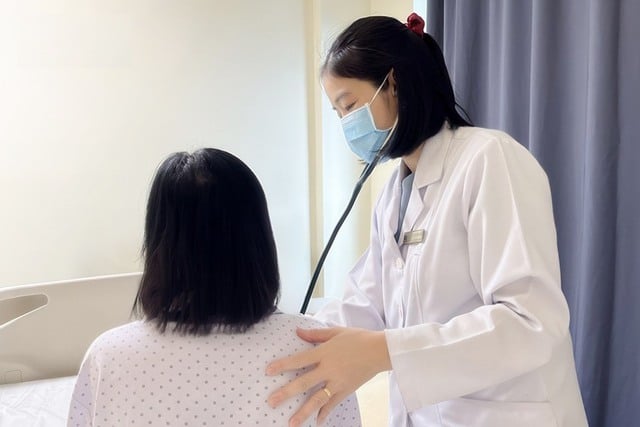
Doctor examines patient after surgery
PHOTO: TA
According to Dr. Thu, after more than 25 years working in the medical industry, this is the first time she has encountered a case of severe heart valve disease caused by Burkholderia bacteria.
Ms. L. was treated with antibiotics for 6 weeks, her fever gradually decreased and disappeared. In the next 8 months, her fever did not return, her health was stable, and she was able to live and work normally. She continued to take medication and had regular check-ups so that the doctor could closely monitor her. This disease can recur, so after the acute phase, the patient needs to continue taking oral antibiotics for at least 3 months.
In March 2025, Ms. L.'s health recovered and she underwent aortic valve replacement surgery. After surgery, the valve tissue sample was cultured to see if there were any remaining bacteria. The results showed that there were no traces of Burkholderia bacteria, indicating that the pathogen had been completely eliminated. The patient recovered quickly, and her EF (heart contractility) index returned to above 50%, like a normal person. Ms. L. was discharged from the hospital a week later.
Avoid contact with suspected contaminated water or dirty mud.
Specialist Doctor Do Duy Long, Department of Cardiology, Tam Anh General Hospital, Ho Chi Minh City, said that Burkholderia is a gram-negative, small, mobile bacteria that grows and develops in aerobic conditions (oxidizing environment), but some species can live in anaerobic environments or switch to anaerobic growth under some special conditions. People who work in soil-related jobs such as farming, cultivating, digging, etc.; people who travel or work in areas prone to epidemics are likely to be infected with this type of bacteria, especially when the rainy season comes. Sometimes it is impossible to determine how the patient was infected with Burkholderia bacteria, as in the case of Ms. L.
According to Dr. Long, to limit the risk of infection caused by Burkholderia bacteria, you should avoid contact with water sources suspected of being contaminated or dirty mud, especially when the body has open wounds, burns or skin infections; avoid swimming in polluted ponds, lakes or rivers; use protective gear (shoes, boots, gloves, etc.) when working in contact with contaminated soil, water or in unsanitary environments.
"When symptoms of suspected Burkholderia infection such as fever, cough, pleurisy, joint pain, muscle pain, headache, loss of appetite, night sweats appear, you should go to the hospital for examination," Dr. Long recommended.
Source: https://thanhnien.vn/sot-uong-thuoc-khong-ha-di-kham-phat-hien-vi-khuon-an-thung-van-tim-185250508130752082.htm


![[Photo] Welcoming ceremony for Hungarian President Sulyok Tamas and his wife on an official visit to Vietnam](https://vphoto.vietnam.vn/thumb/1200x675/vietnam/resource/IMAGE/2025/5/28/7956bacf4a3e4bde8326cb8f72a3b26c)

![[Photo] Hungarian President begins official visit to Vietnam](https://vphoto.vietnam.vn/thumb/1200x675/vietnam/resource/IMAGE/2025/5/27/ab75a654c6934572a4f1a566ac63ce82)

![[Photo] Hungarian President and his wife take a walk and enjoy the view of Hoan Kiem Lake](https://vphoto.vietnam.vn/thumb/1200x675/vietnam/resource/IMAGE/2025/5/28/b9c83fbe6d5849a4805f986af8d33f39)
![[Photo] President Luong Cuong holds talks with Hungarian President Sulyok Tamás](https://vphoto.vietnam.vn/thumb/1200x675/vietnam/resource/IMAGE/2025/5/28/0f603676be6444aa9f52d4bd32582b4d)
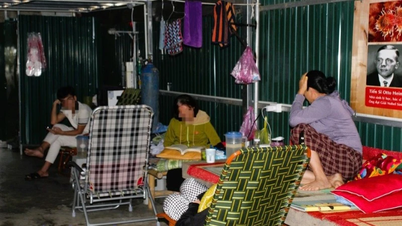

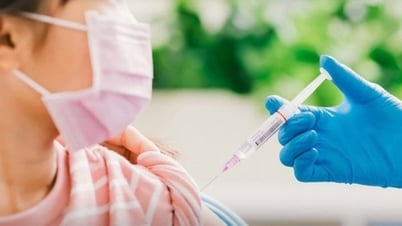

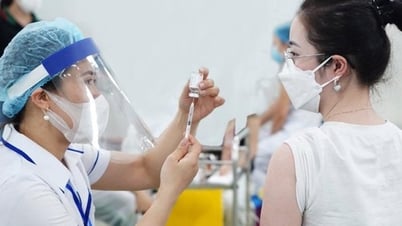

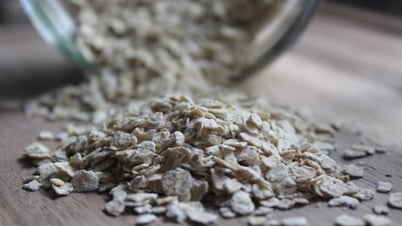
![[Video] Cancer Screening: Are Tests Really Necessary?](https://vphoto.vietnam.vn/thumb/402x226/vietnam/resource/IMAGE/2025/5/28/2855b2287bab4ee3b9668099e4723265)





















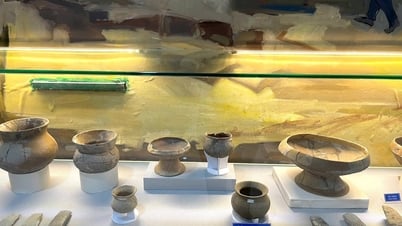















![[Case Study] VIMC – 30-year journey of overcoming waves and reaching far](https://vphoto.vietnam.vn/thumb/402x226/vietnam/resource/IMAGE/2025/5/28/ac45a93a62884eec85471e6c89ef521a)







































Comment (0)